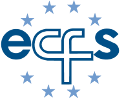Abstracts categories:
- Genetics
- Diagnosis / Screening
- Cell Biology / Physiology
- Immunology
- Microbiology / Antibiotics
- Clinical Trials / New therapies
- Pulmonology / Inflammation / Immunology
- Physiotherapy
- Gastroenterology / Liver Disease
- Endocrinology / Metabolic Complications
- Nutrition / Growth
- Nursing / Psychosocial Issues
- Epidemiology / Registry
- Case Presentations:
- Physiotherapy
- Psychosocial Issues / Nursing
General Instructions:
- Do not submit abstracts reporting data already published.
- Abstracts should be as informative as possible and should adequately describe the objectives, methods, results and conclusions of the research.
- Case Presentations in specific categories may be submitted through the abstract submission system as well. Please choose between “abstract” and “case presentation” before you enter your submission.
- Posters are particularly suitable for presentation of complex data or material requiring extensive illustration. It should be noted that poster presentations carry the same status as oral presentations and will be subjected to the same selection process.
- Abstracts accepted as Poster will be presented as both paper Poster and ePoster. A limited number of accepted abstracts will also be selected for oral presentation in the workshops. These abstracts are to be in ePoster format only. Instructions for poster, ePoster and oral presentation will be included in the abstract notification to corresponding authors after the review process.
- Preference will be given to new and/or ongoing work.
- Abstracts are to be submitted using the electronic online system – no other submission medium may be used. Abstracts sent by fax, post or email will not be accepted
- Abstracts are to be submitted no later than: 14 January 2022.
As part of the online submission process, corresponding authors are responsible for:
- Ensuring that all authors of a submitted abstract are aware of and agreed to have the abstract submitted and published, if accepted.
- Acknowledging that the contents of the abstract have not been published prior to the date of submission.
- Understanding that accepted abstracts will be published in a supplement to the Journal of Cystic Fibrosis. Publication is scheduled for June 2022.
- Completing a Conflict of Interest Disclosure Statement: A conflict of interest is defined as the existence of any significant financial interest or other relationship with the manufacturer(s) of any commercial product(s) discussed in an educational presentation. Corresponding authors will need to indicate whether or not there is a conflict of interest relative to their submitted abstract.
Other Instructions:
- Abstracts should not contain proprietary or confidential information.
- The presenting author of an accepted abstract must register for the Conference.
Online Abstract Submission:
The electronic abstract submission and the review process have been designed to ensure that no one other than authorised reviewers and the ECFS Administration will have access to abstracts before the publication date.
Each step of the online abstract submission process is accompanied with instructions. Please read these carefully as you navigate through the different steps.
- Corresponding Author: Corresponding authors are required to create a user account prior to submitting an abstract. Thereafter a user name and password will be used for entering the system.
- Maximum Characters: The abstract body may be no longer than 2000 characters, including spaces. The electronic system allows for the submission of tables, however please be aware that each row of a table will deduct 50 characters from the total available for your abstract. The maximum number of tables allowed per abstract is 2. Images are not to be included but graphs, photos, etc. may be displayed on the corresponding poster at the Conference.
- Abstract Titles: Titles should be written in sentence case, i.e.: This abstract title is written in sentence case.
- Authors: Authors’ names are to be entered with first name and last name and corresponding affiliation. The system will automatically select the initial of the first name and add a comma between names if there is more than one author. The system will also automatically add a subscript reference to the appropriate affiliation.
- Affiliations: The system will automatically add a subscript reference to the appropriate author.
- Spacing: The abstract body is to be single line spaced.
- Abbreviations: Standard abbreviations are acceptable. Any special abbreviations should be given in parenthesis after the first appearance of the full word or phrase for which it stands.
- Young Investigator Award / Travel Grants: At Step 4 of the abstract submission process, young investigators (under the age of 35) have the opportunity of applying for an Award or Travel Grant. Please make sure that you also upload all required documents in your profile overview. More information available here.
- Revisions to abstracts after the submission deadline (14 January 2022: 23:59:59: Central European Time) will not be permitted. Please proofread your abstract carefully before submitting it. Only completed, submitted abstracts will be eligible for review.
Abstracts remaining in the system as “drafts” after the submission deadline will be discarded. Abstracts will be reviewed by the 45th ECFS Scientific Committee and Steering Committee. The decision from the 45th ECFS Scientific Committee and Steering Committee is final.
Requests for the withdrawal of an abstract must be received in writing by the ECFS before 25 March 2022.

